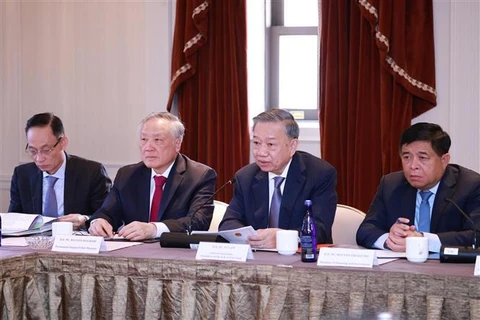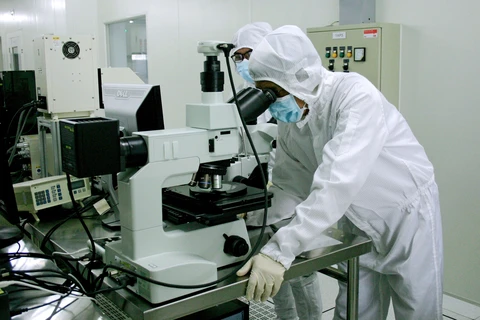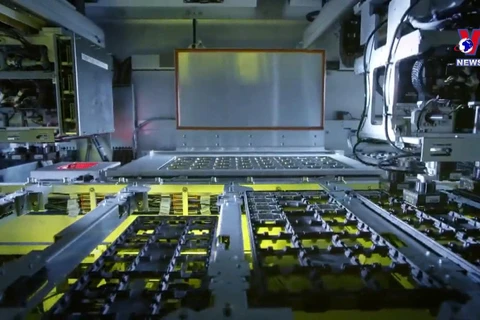
Hanoi (VNA) – Deputy Prime Minister Le Thanh Long on September 21 signed Decision No. 1017/QD-TTg approving a programme on developing human resources for the semiconductor industry until 2030 with a vision to 2050.
Under the decision, Vietnam aims to train and develop high quality human resources for the semiconductor industry by 2030, and a strong contingent of semiconductor personnel capable of joining the global value chain of the industry by 2050.
Specifically, by 2030, Vietnam expects to have at least 50,000 engineers and workers with bachelor's and higher degrees in all stages of the semiconductor value chain, along with at least 5,000 personnel with intensive expertise in artificial intelligence serving the semiconductor industry.
Alongside, the country will provide intensive training in semiconductor industry for 1,300 lecturers, while establishing, upgrading and modernising four national-level laboratories along with local-level laboratories at 8 public higher education institutions in the northern, central and southern regions to serve the training of human resources.
By 2050, the country hopes to meet the domestic human resources demand in both number and quality in all stages of the semiconductor value chain, and form a system of training institutions, especially higher education institutions capable of training high-quality human resources to serve the development of Vietnam's semiconductor industry.
To achieve the goals, the decision clarified seven major groups of tasks and solutions, including those on developing and perfecting specific mechanisms and policies; investing in infrastructure, facilities and technology for training; organising training activities; mobilising and diversifying resources; building an ecosystem, creating output for human resources, supporting business development; and promoting research and development (R&D) activities.
The funding for the implementation of the programme will come from the State budget, enterprises, organisations, individuals and other legal sources.
The Ministry of Planning and Investment was assigned to be responsible for coordinating, supervising and evaluating the implementation of the programme.
The Ministry of Education and Training was ordered to direct and guide higher education institutions to develop training projects, selecting training programmes of higher education institutions and issuing training plans according to the objectives of the programme.
Meanwhile, the Ministry of Finance was requested to allocate capital for the progamme in line with legal regulations./.






















